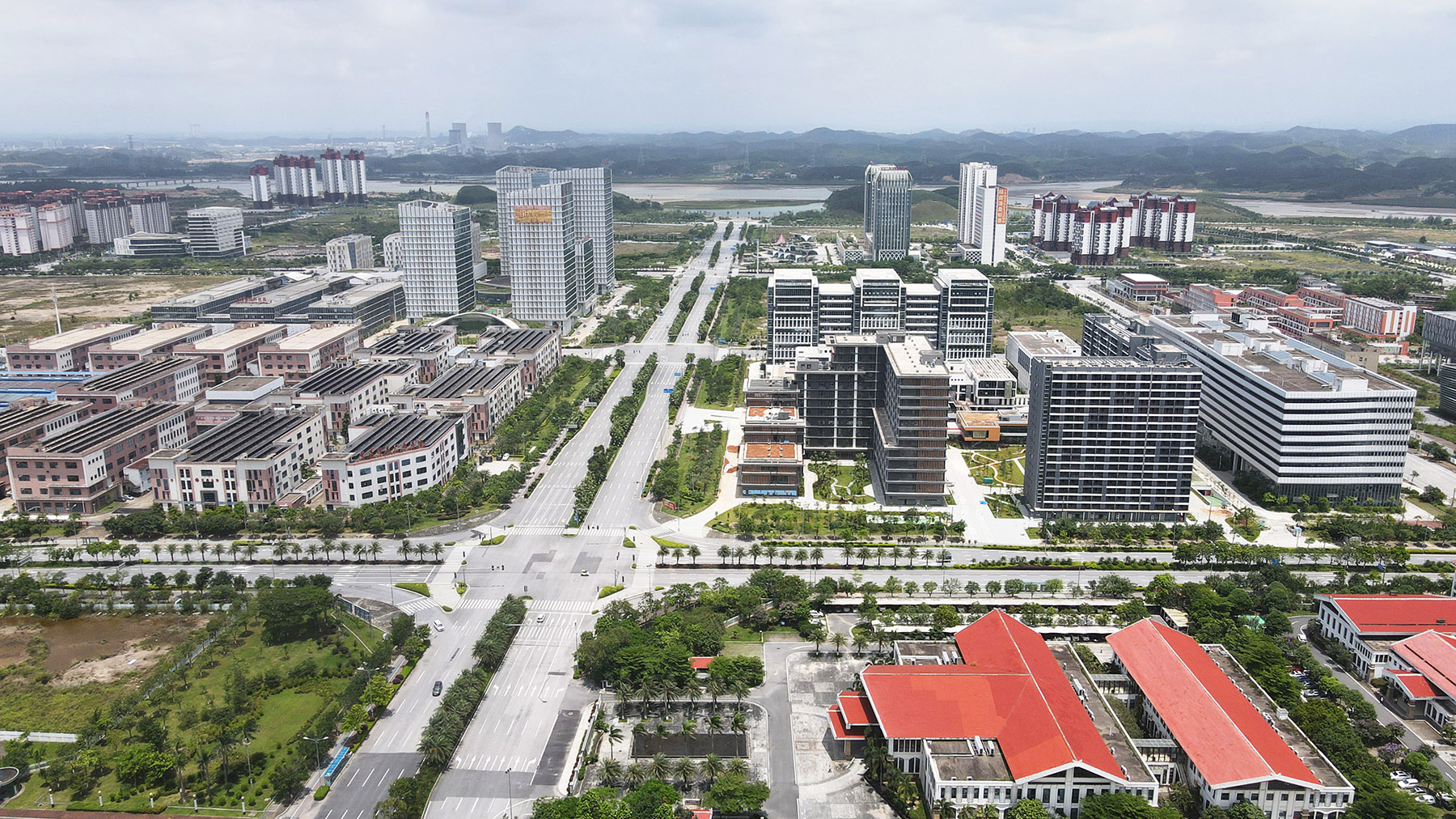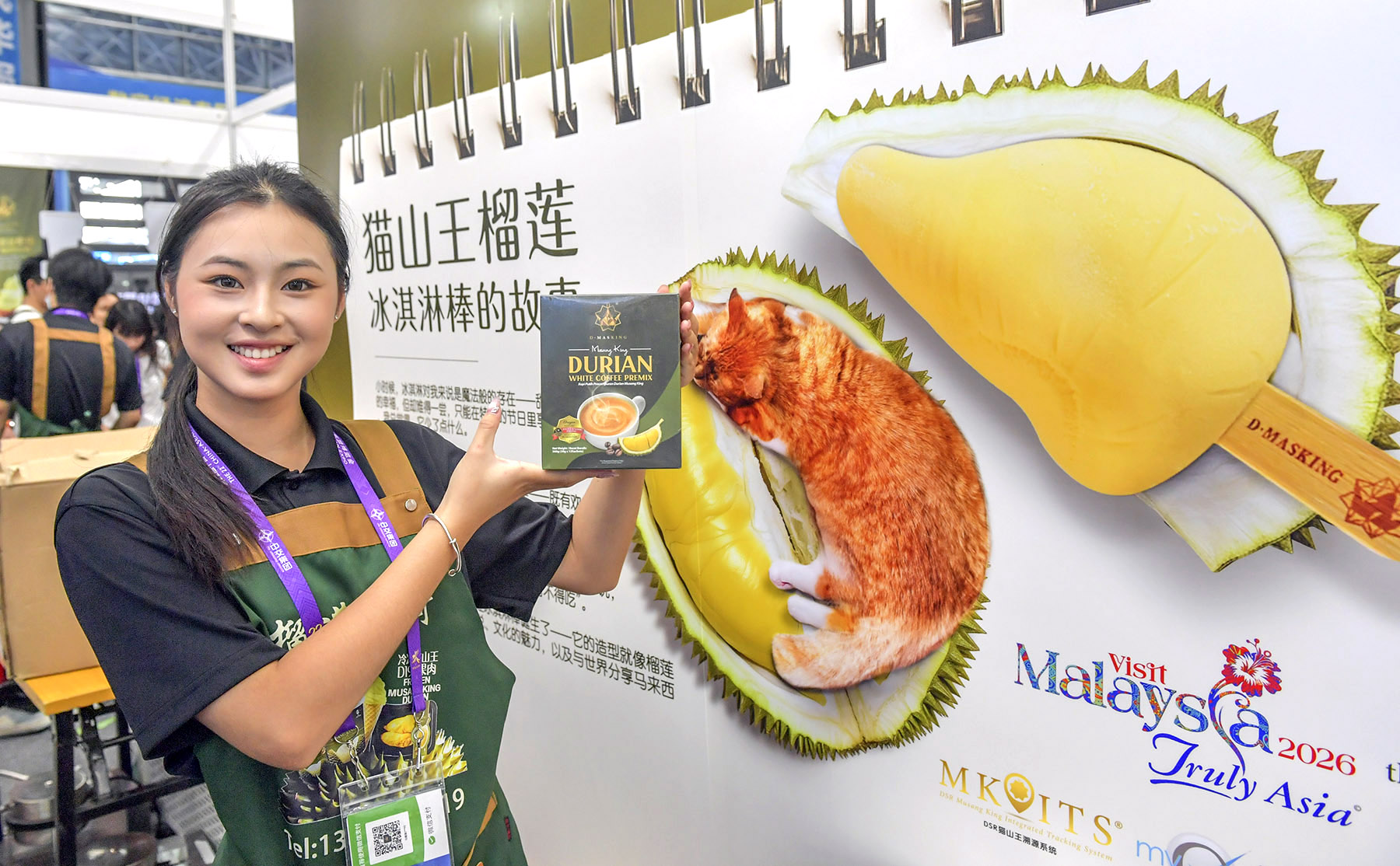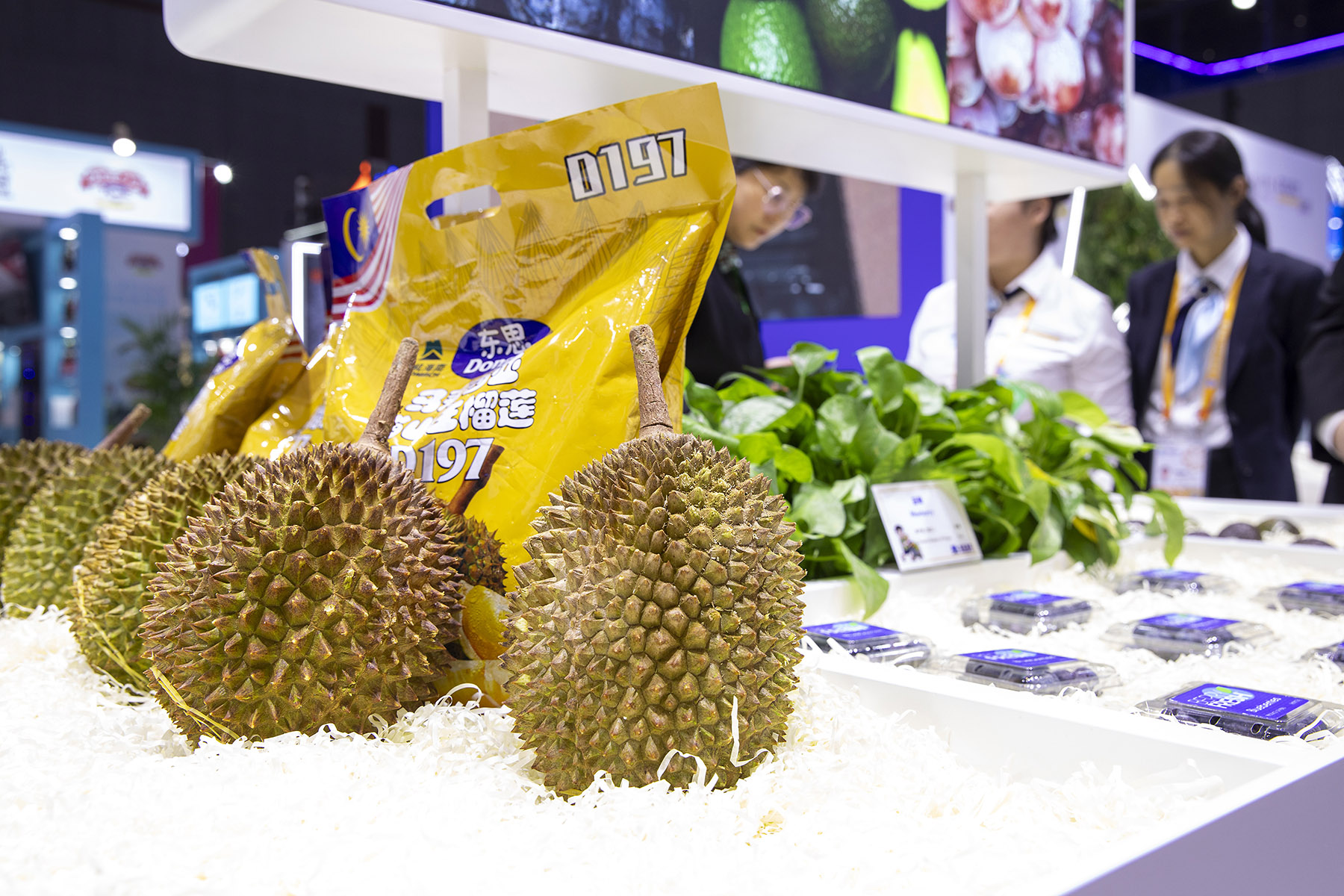Expanding exchanges in technology and agribusiness highlight the momentum of regional integration

As major developing economies and emerging players in the Asia-Pacific region, China and Malaysia are strengthening their collaboration in key areas such as agricultural trade, new energy vehicles, and industrial parks.
This partnership aims to build a high-level strategic community with a shared future, elevating bilateral economic and industrial ties to new heights, experts said.
From economic and trade exchanges in Kuala Lumpur to cooperation signing ceremonies in Zhengzhou, Henan province, the interactions between China and Malaysia have been frequent and meaningful.
"Today, Malaysia and China are presented with an excellent opportunity to pursue common development through cooperation," said a senior economic official from the Malaysian government.
Durian: a sweet symbol
The journey of Malaysian durians to China exemplifies the agricultural cooperation between the two countries. When China opened its market to frozen durians imported from Malaysia in 2019, these fruits quickly surpassed cherries to become the top-selling imported fruit in the Chinese market that year.
In 2024, marking the 50th anniversary of diplomatic relations between the two countries, China expanded its import scope to include fresh Malaysian durians, injecting new momentum into bilateral agricultural trade.
At the plantation of Top Fruits Sdn Bhd in Malaysia's Johor state, durian trees are laden with fruit. The company has focused on exporting durians to China for over 20 years, and since fresh durians were approved for export in August last year, orders have surged. "Now, fresh durians can reach Chinese consumers the day after being picked," a spokesperson said.

Notably, Top Fruits has partnered with Xiamen University's Malaysia campus to use artificial intelligence for monitoring durian growth, enhancing product quality and setting a new standard for agricultural collaboration.
Beyond durians, China-Malaysia agricultural trade has formed a mutually beneficial pattern. Malaysian specialties like white coffee, mangosteens, bird's nests, and palm oil have entered Chinese households through platforms like the China International Import Expo and the China-ASEAN Expo. In return, high-quality Chinese fruits such as Luochuan apples and Korla pears have enriched Malaysian tables.
The growing cooperative atmosphere has driven bilateral trade volumes to new levels. In 2024, China-Malaysia trade reached $212.04 billion, a year-on-year increase of 11.4 percent and a record high.
In the first quarter of this year, trade rose by 28 percent year-on-year, demonstrating strong growth momentum. The Associated Chinese Chambers of Commerce and Industry of Malaysia predicts that bilateral trade could exceed $230 billion in 2025, with high-tech products accounting for 45 percent of total trade, becoming a core driver of growth.
China has remained Malaysia's largest trading partner for 16 consecutive years and a major source of investment for many years. Conversely, Malaysia has consistently ranked as China's second-largest trading partner and top import source within ASEAN, with mutual dependence in trade chains deepening.
NEVs and industrial parks
This close economic and trade connection extends beyond traditional commodity exchanges to high-value-added sectors.
In the digital economy, for instance, China and Malaysia have intensified cooperation in recent years. Chinese enterprises have introduced big data and cloud computing technologies to Malaysia, supporting the digital transformation of local e-commerce platforms and small and medium-sized enterprises.
Leveraging its geographical advantages, Malaysia has become a key hub for Chinese enterprises expanding into the ASEAN digital market, with cooperation in cross-border e-commerce logistics and digital payments taking shape.
In industrial cooperation, NEVs have emerged as a new benchmark for China-Malaysia collaboration. The Proton automobile factory in Tanjong Malim, north of Kuala Lumpur, embraces in-depth cooperation between automakers from the two countries.
Since China's Geely signed a cooperation agreement with Proton in 2017, it has brought intelligent connected systems and new energy powertrain technologies to Malaysia, assisting Proton in building local assembly lines and achieving full-chain integration from research to manufacturing.
The jointly developed e.MAS 7 model, Malaysia's first domestically produced NEV, has become a bestseller in the local market. Thanks to this cooperation, Proton has maintained the second position in Malaysia's auto market in terms of sales and market share for six consecutive years, reversing its previous decline.
Currently, Geely and Proton are elevating their cooperation by building the Automotive Hi-Tech Valley in Tanjong Malim, which is expected to become a core base for NEV research and manufacturing in ASEAN, attracting upstream and downstream component enterprises.

Meanwhile, more Chinese auto brands such as GWM and BYD are accelerating their presence in Malaysia. By launching customized NEV models and expanding local production and assembly scales, they are enriching the local NEV supply and driving Malaysia's auto industry toward a green and intelligent transformation.
Industrial parks serve as another key platform for full-chain cooperation between China and Malaysia. The Malaysia-China Kuantan Industrial Park and the China-Malaysia Qinzhou Industrial Park have established cross-border industrial collaboration platforms and become models of bilateral industrial cooperation.
The Kuantan park, covering approximately 10 square kilometers, has attracted projects in steel, tires, and papermaking, with a cumulative industrial output value exceeding 100 billion yuan ($14 billion). Notably, the joint steel project has transformed Malaysia's steel industry, turning the country from a long-term importer into an export-capable steel producer.
On the Chinese side, the Qinzhou park has also delivered remarkable results in industrial cooperation. Inside the park's Guangxi Zhongma Jinguyan Biotechnology workshop, Malaysian raw bird's nests are processed and tested before being labeled with traceability tags and shipped to markets across China.
As China's first full-chain bird's nest platform, the park houses a national key laboratory for bird's nest testing and has established a complete cross-border chain. Currently, 23 bird's nest enterprises have settled in the park, with 13 obtaining import qualifications, accounting for two-thirds of the national total.
Sub-national collaboration
The deepening of China-Malaysia economic and trade cooperation is also reflected in frequent interactions at the sub-national level.
On Tuesday, the China (Chongqing)-Malaysia Economic and Trade Exchange took place in Kuala Lumpur. The event focused on automobiles, motorcycles, palm oil, and high-quality agricultural products, providing a targeted cooperation platform for enterprises from both regions.
Malaysia serves as an important gateway for Chinese enterprises to enter the ASEAN market, while Chongqing can connect Malaysian enterprises to China's vast inland market, said Low Kian Chuan, chairman of the Malaysia-China Business Council. The two sides have great potential for industrial complementarity, he noted.
This sub-national collaboration model was also demonstrated in Zhengzhou, where the China (Henan)-Malaysia Economic and Trade Cooperation Exchange was held on Sept 26. During the event, the Malaysia-Henan Exhibition and Sales Center was launched. The center is designed to provide integrated services of product display, warehouse distribution, and store distribution for Malaysian specialty products.
Zhengzhou Mayor Zhuang Jianqiu pledged to attract Malaysian enterprises with the best business environment and services.
Contact the writers at haonan@chinadaily.com.cn


